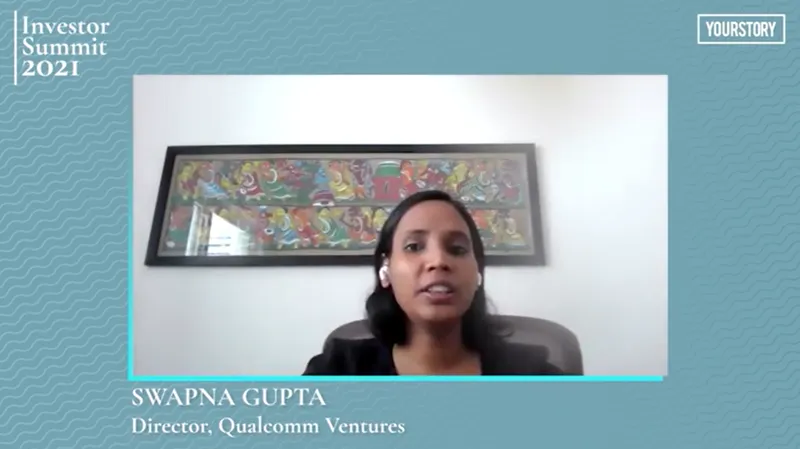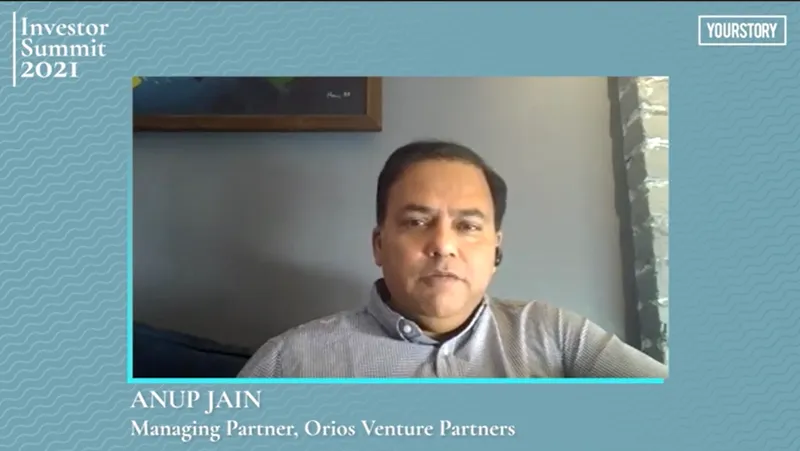[Investor Summit 2021] Experts discuss how startup founders can engage with corporate venture capital firms
At YourStory’s Investor Summit, panellists discussed the various nuances of the nascent corporate venture firms in India and how startup founders can better engage with them.
The burgeoning startup ecosystem in the country has witnessed the expansion of the capital pool with a greater number of participants getting in to support new ventures. And among the important contributors are corporate venture capital firms.
Corporate venture capital firms are still at a nascent stage in the Indian startup ecosystem, but the important role they play is growing by the day. YourStory conducted a day-long Investor Summit on March 31 and one of the panel discussions was on ‘Shift in founders’ choices for ventures’.

Providing a context on the kind of role corporate VC firms are playing in the Indian startup ecosystem, Swapna Gupta, Director, Qualcomm Ventures, said, “There is a lot of cross learning with closer synergies between corporate VC firms and startups. What we need today is smart capital rather than just capital.”
Swapna bought home the point on how corporate VC firms are very interested to know what are the new technologies that are coming their way and how they contribute towards building it.
Anup Jain, Managing Director, Orios Venture Partners, said, “The precious resource for any startup that wants to grow very fast is time. If corporate VC firms want to have their skin in the game, they need to provide active mentoring. If that happens, then it is magic.”

Given the early days for corporate VC firms in India, there is much to learn for them on how to engage with the startups and vice versa.
Tanuj Shori, CEO, SquareYards, said, “Startups can learn from corporate VC firms as they have decades of experience in running businesses and also need to leverage them as network accelerators.”
Tanuj added that corporate VC firms also need to instil systems and protocols with the right professionals who understand how the startup ecosystem operates to have a more meaningful impact.
Swapna said, “We want a meaningful relationship and the intent is whether we can take a company from good to great and then best.”
At the same time, there is also the question on whether the founders or startups are aware about the corporate VC firms.
Anup said, “There is not enough information out there for startup founders to know about corporate VC firms. They need to create that awareness and make their presence felt.”
As Swapna put it, corporate VC firms need to put in more concerted efforts in creating those structures and help in building the ecosystem.
Even as startups start to engage with corporate VC firms, it is also creating a new kind of playing field.
Tanuj said, “Corporate VC firms bring that sense of balance to the startup ecosystem as they have better ingredients, but they need to stop treating startup investments as extensions of their businesses.”

Given that corporate VC firms are increasingly going to play an important role in the days to come, startup founders also need to know how to engage with these entities.
Swapna said, “It is very important for founders to know what they are bringing to the table and also look at whom they are engaging with.”
The panellists were clear that founders need not purely chase financial capital as they have to understand what other value additions that a classical corporate VC firm would bring to the table.
Tanuj said, “Founders should also have certain bargaining power and the confidence to say no to investments.”
This also requires that there is more information available with the founders on the kind of investors they are being engaged and more clarity on what would be their obligations while seeking capital from corporate VC firms.
Though, Anup put in context on the relationship between startup founders and corporate VC firms. “Founders invite capital for their immediate journey and there can be no long term without the short term.”
Edited by Megha Reddy


![[Investor Summit 2021] Experts discuss how startup founders can engage with corporate venture capital firms](https://images.yourstory.com/cs/2/a09f22505c6411ea9c48a10bad99c62f/Imagel4n2-1617470631459.jpg?mode=crop&crop=faces&ar=2%3A1&format=auto&w=1920&q=75)




